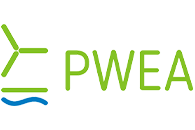Financial institutions appreciate the Code of Good Practice for the wind power industry. Good example was given by DNB Bank Poland, supporting the guidelines from the document. The result of multiple months of work by the members of the Polish Wind Energy Association sets the standards for investing in onshore wind farms while respecting the local communities and the natural environment.

The Code of Good Practice is a practical guide for investors on how to develop wind projects taking into account the interests of local communities and protecting the natural environment. The document, published in early June 2019, is a collection of regulations and guidelines for investors, as well as examples of their voluntary activities, and is intended to provide inspiration to take actions aimed at sustainable development and offering added value for local residents.
– Onshore wind power is currently the cheapest and most environmentally friendly energy generation technology. We are convinced that development of wind farms will support just and sustainable transition of the Polish economy, contributing to modern reindustrialization and reducing the transformation costs. That is why we are even happier that DNB Bank Poland, having funded ca. 60 wind power projects around the world, is actively joining the promotion of the Code of Good Practice. We hope that other institutions will follow suit – says Janusz Gajowiecki, PWEA President.
– We have been involved in the development of renewable energy sources in Poland for many years. Our strategy includes participation in projects that contribute not only to economic growth, but also to environmental protection. The component of offering value to local communities is also very important. PWEA’s Code of Good Practice includes all these aspects, and that is why we decided to support it. Such an initiative is very much needed, taking into account the difficult business and social environment the industry has been operating in for many years – explains Artur Tomaszewski, CEO of DNB Bank Poland.
The bank currently participates in financing five wind farms in Poland and is the main commercial bank in the Potęgowo project, among others. It is one of the largest onshore wind farms in Poland, with a total capacity of 219.5 MW.
The Code of Good Practice is the response to the need for further development of wind power capacity in Poland. This dynamic increase was brought to a halt in July 2016 by the setback rule for minimum distance between wind turbines and households and protected areas (the so-called 10H rule). According to the industry, the key to success in the future is to make decisions on wind farm location in close dialogue with people living in the vicinity.
– The stability of operation of wind farms is extremely important, both for the investors and for the banks, as these projects have a duration of up to 25-30 years. Demonstrating the technological progress, happening before our eyes, responding to emerging doubts, and busting the myths around wind power, all help to increase mutual trust among representatives of self-governments and members of local communities. Such trust is necessary to build social acceptance for wind farm projects, which consequently helps develop the entire project in an efficient manner and fosters good cooperation between neighbours during the operating lifetime of the farm – adds Magdalena Sobczyńska, head of PWEA’s working group developing the Code of Good Practice.
